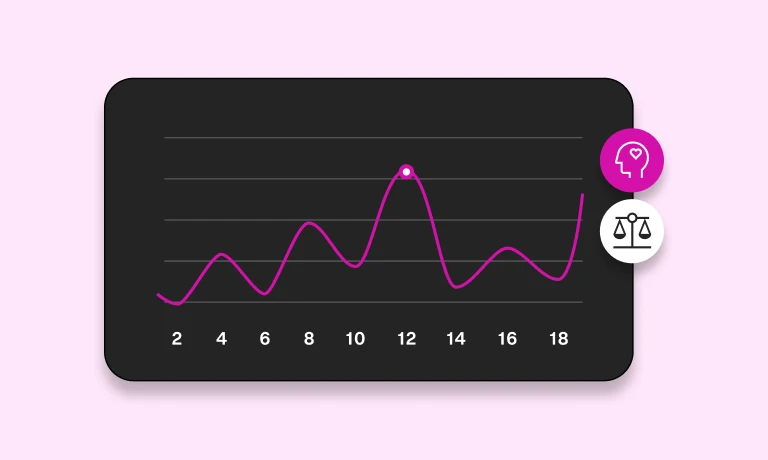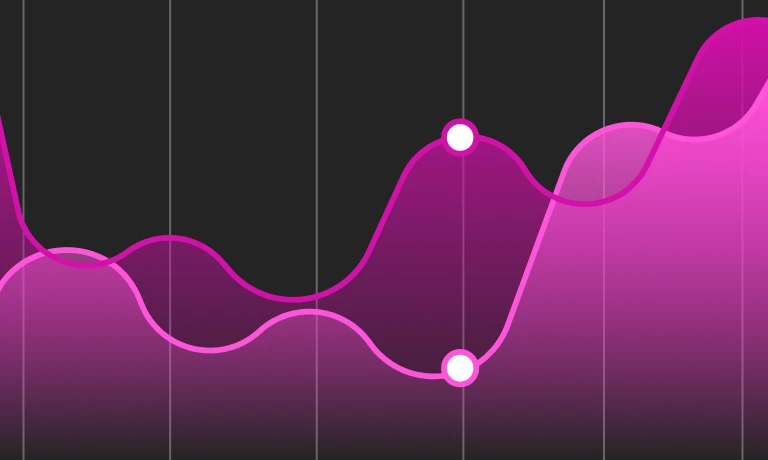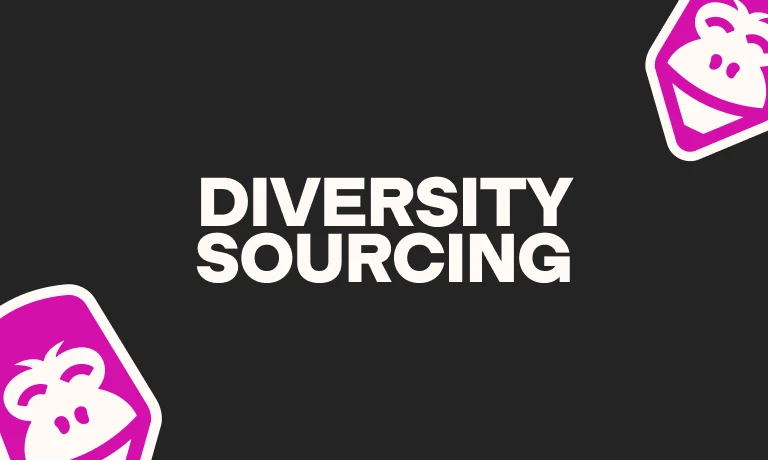You’re likely here because you’ve never heard of the 16-personality type test – or you have a vague understanding but are curious to learn more. Let’s cut to the chase.
The 16 Personalities test is a popular personality assessment. When used in recruitment, it gives hiring managers insights into a candidate’s thought processes, personality, preferences, and more. It helps you understand what makes an applicant tick, how they might fit into your team, and how they might contribute to your business.
Read on to learn all about this test, the different personality types, and the ways you can use the test to enhance your hiring process.
The 16 Personalities test for hiring: An overview
The 16 Personalities test is based on the work of the famous psychiatrist Carl Jung. It groups each personality type into one of 16 categories. These categories are unique combinations of four core personality trait pairs, called “dichotomies.” These are:
Extraversion (E) vs. Introversion (I)
Sensing (S) vs. Intuition (N)
Thinking (T) vs. Feeling (F)
Judging (J) vs. Perceiving (P)
Personality types have unique codes made up of four letters. Each code includes one letter from each pair, and each combination yields one of the 16 personality types – for example, ENFJ or INTP.
According to the 16 Personalities framework, a person’s core personality traits remain stable – for instance, someone who’s introverted stays introverted over their lifetime.
Someone’s personality type determines their reactions, preferences, behaviors, and decision-making. Although someone’s core traits remain stable, these factors – including preferences – can evolve.
Let’s take a closer look at the core trait pairings.
Extraversion (E) – Introversion (I)
Extraversion vs. Introversion is the first trait pairing the test measures. It reflects how a candidate’s energy levels are impacted by social situations and whether they prefer to work as part of a team or independently.
Extroverts gain energy from being with others, prefer to work as a team, and tend to enjoy social gatherings like parties.
Introverts tend to lose energy from being with people. They may need time to recharge or regroup after interacting with a group, prefer to work alone, and keep a small circle of friends.
Sensing (S) – Intuition (N)
Whether someone is Sensing or Intuitive depends on how they gather information about the world around them and how perceptive they are.
Sensing people look for facts and details before making decisions, prioritize practicality, and pay great attention to detail. They have a methodical approach to tasks and prefer to look for tangible evidence.
Intuitive people tend to look at the big picture and are more imaginative. They tend to skip over small details and instead look for patterns and creative solutions to problems.
Thinking (T) – Feeling (F)
How candidates approach problems and make decisions will determine whether they’re Thinkers or Feelers.
Thinkers are logical, prefer to make decisions based on data, and tend to be more impartial than their feeling counterparts.
Feelers make decisions based on their emotions, empathy for others, and personal values. They prioritize their relationships with others over logical thought processes and try to maintain harmony when making decisions.
Judging (J) – Perceiving (P)
The Judging vs. Perceiving pairing is a measure of how applicants approach the world and manage their lives.
Judgers tend to be more organized, goal-oriented, and prefer structure. They work well with deadlines and like planning things ahead of time.
Perceivers prefer to go with the flow. They like to keep their options open, struggle with rigid schedules, and are more adaptable and flexible.
The 16 personalities
Here’s the full list of 16 personality types and their associated names:
How to use the 16 Personalities test
Although the 16 Personalities test gives great insights, it shouldn’t be the sole basis for hiring decisions, as it doesn’t fully reflect a candidate’s suitability for your role.
Instead, you should use the test alongside other tests, a fair interview process, and any other assessment methods you prefer. This approach will give you a full overview of a candidate’s skills, past experiences, and personality – ensuring your hiring decisions are well-rounded and objective.
The best insights on HR and recruitment, delivered to your inbox.
Biweekly updates. No spam. Unsubscribe any time.
Why use the 16 Personalities test in your hiring process?
There are many benefits to using the 16 Personalities test in your hiring process. Here are some.
Inform your interview process
Knowing a candidate’s personality type can help you come up with meaningful interview questions.
For instance, some personality types struggle with deadlines. INFJs (Advocates), for example, want to get projects “just right.” You can assess INFJs during interviews – and better understand their struggles and strengths – by asking them questions like, “Describe a time when you struggled to meet a deadline.”
Build a well-rounded team
Having your existing team complete the 16 Personalities test before recruiting a new member can give you valuable insights into team dynamics and help you identify any personality type gaps. This way, you can seek out the personalities your team needs during the recruitment process. For example, if you have a team full of Feelers, you might need to get some Thinkers into the mix.
Tailor your onboarding and training
Understanding your team’s personality types can help you create tailored onboarding and training sessions that cater to their personality type. For example, you may want to consider group training sessions or shadowing for Extroverts, while Introverts will likely benefit from one-on-one coaching where they can ask lots of questions.
Tailoring your onboarding processes to your new hire’s needs will ensure they get the best start in their new job and can improve new hire retention by up to 82%.
Better support your new hires
Using the 16 personality types as part of your hiring process can help you better understand your employees and offer them personalized support throughout their employment journey.
For example, ENTJs (Commanders) tend to have a blunter communication style and appreciate more direct feedback. You can support Commanders in the workplace by giving them direct critical feedback.
How 16 Personalities tests help workplace dynamics
Check out some of the ways using the 16 Personalities test can improve workplace dynamics.
1. Improves communication
Understanding your team member’s personality types can support more effective communication and a reduced likelihood of conflict. By recognizing how people express themselves and digest information, you can help your team members adapt their communication styles to ensure messages are understood and received well.
2. Enhances mentorship
You can also use your team members’ personality types to determine optimal mentorship pairings for fostering mutual growth and skill development. For instance, more sensitive personality types can mentor Thinkers and Judgers to be more understanding and empathic.
This two-way mentorship will help employees be more well-rounded and better equipped to navigate diverse workplaces.
3. Prevents burnout
Understanding an employee’s personality type will help you understand their working style, preferred feedback style, and any unique stressors that may impact them. This enables you to implement targeted strategies to mitigate burnout and support employee resilience.
For example, ISFPs (Artists) tend to get overwhelmed in high-pressure environments. If your company is fast-paced, you can conduct regular check-ins to support your Artists and see if they’re feeling too overwhelmed.
4. Strengthens teamwork
Finally, having well-rounded teams with various personality types will create a balanced yet dynamic work environment where team members with different strengths and approaches can complement each other. This means better problem-solving, stronger team morale, and more.
Recommended reading: Check out these five 16 Personalities test alternatives.
Upgrade your recruitment with TestGorilla
The 16 Personalities test enables you to build a well-rounded team, create personalized onboarding processes, and better assist your new hires. What’s more, using this test can help you improve communication, enhance mentorship, and more.
TestGorilla is a talent discovery platform that offers an expert-created 16 Personalities test and a range of other tests – all which are scientifically validated. By combining up to five tests, you can create custom talent assessments for your hiring process. This way, you can say goodbye to paper-thin hiring processes and hello to data-driven and objective candidate evaluations – and discover the best people for your teams.
Watch a live demo or sign up for your free account today and see the difference TestGorilla can make to your recruitment process.
You've scrolled this far
Why not try TestGorilla for free, and see what happens when you put skills first.


















